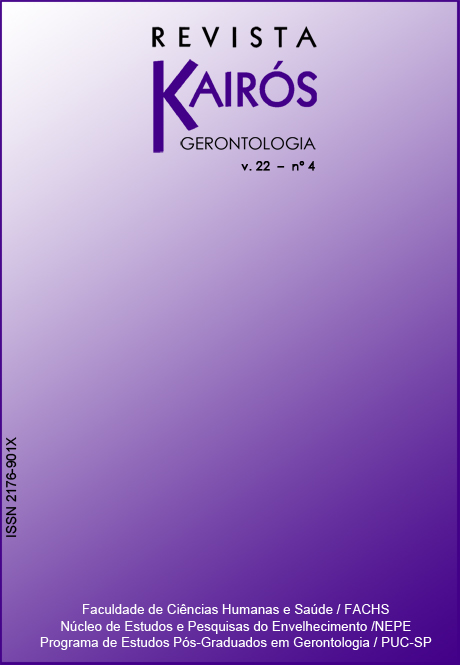Associations between the variables institutionalization, education, polypharmacy, depression and cognitive impairment in two heterogeneous groups of the elderly
DOI:
https://doi.org/10.23925/2176-901X.2019v22i4p99-118Keywords:
Aging, Depression, Cognitive Dysfunction, Institutionalization, Stimulation.Abstract
The objective is to describe and analyze the possible associations between the variables institutionalization, education, polypharmacy, depression and cognitive impairment, in two heterogeneous elderly groups. Methods and Procedures: Subjects were 48 elderly, of whom 24 were institutionalized and 24 were non-institutionalized. The Mini-Mental State Examination (MMSE) was used to assess cognitive decline and, for depression, the Beck Depression Inventory (BDI). As a result: 8.3% of subjects presented cognitive decline and 52,1% presented depression. Among those institutionalized, there was a higher incidence of cognitive decline and depression. Age negatively influenced cognitive performance (rS = -0.450, p = 0.001). An inverse relationship was observed between cognitive decline and depression (rs= -0.304, p = 0.036). Older people with higher schooling had a lower rate of depression, and illiterate elderly individuals presented greater cognitive decline. There were no significant differences between illiterate and low schooling elderly. It was concluded that institutionalized elderly lacking social and cognitive stimulation are more vulnerable to cognitive decline and depression, which indicates the importance of conducting controlled research on protective factors for depression and cognitive decline in elderly populations and the establishment of public policies that aim at improving the quality of life of the elderly population, especially the most deprived elderly and the institutionalized.
Downloads
Published
2019-12-30
How to Cite
Carlomanho, A. M. F., Dantas, L. C. V., & Soares, E. (2019). Associations between the variables institutionalization, education, polypharmacy, depression and cognitive impairment in two heterogeneous groups of the elderly. Revista Kairós-Gerontologia, 22(4), 99–118. https://doi.org/10.23925/2176-901X.2019v22i4p99-118
Issue
Section
Papers


